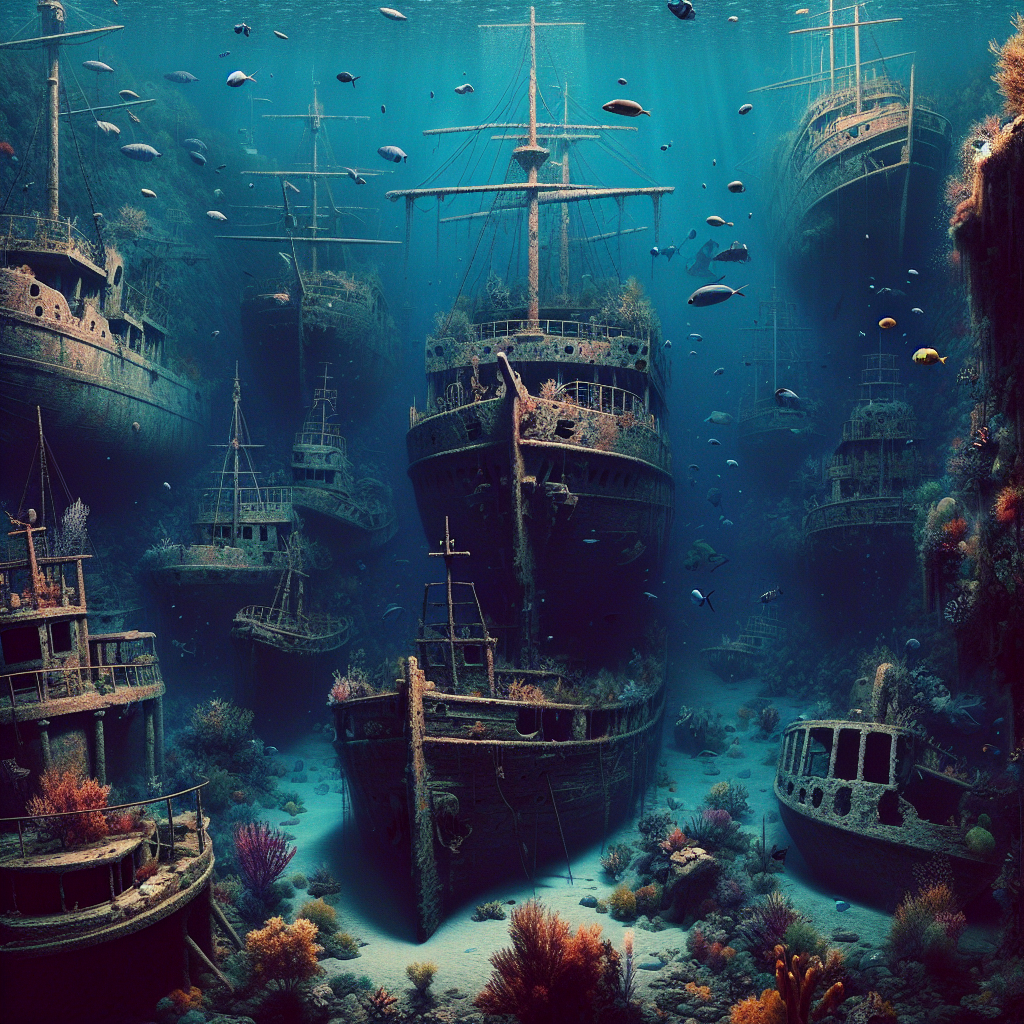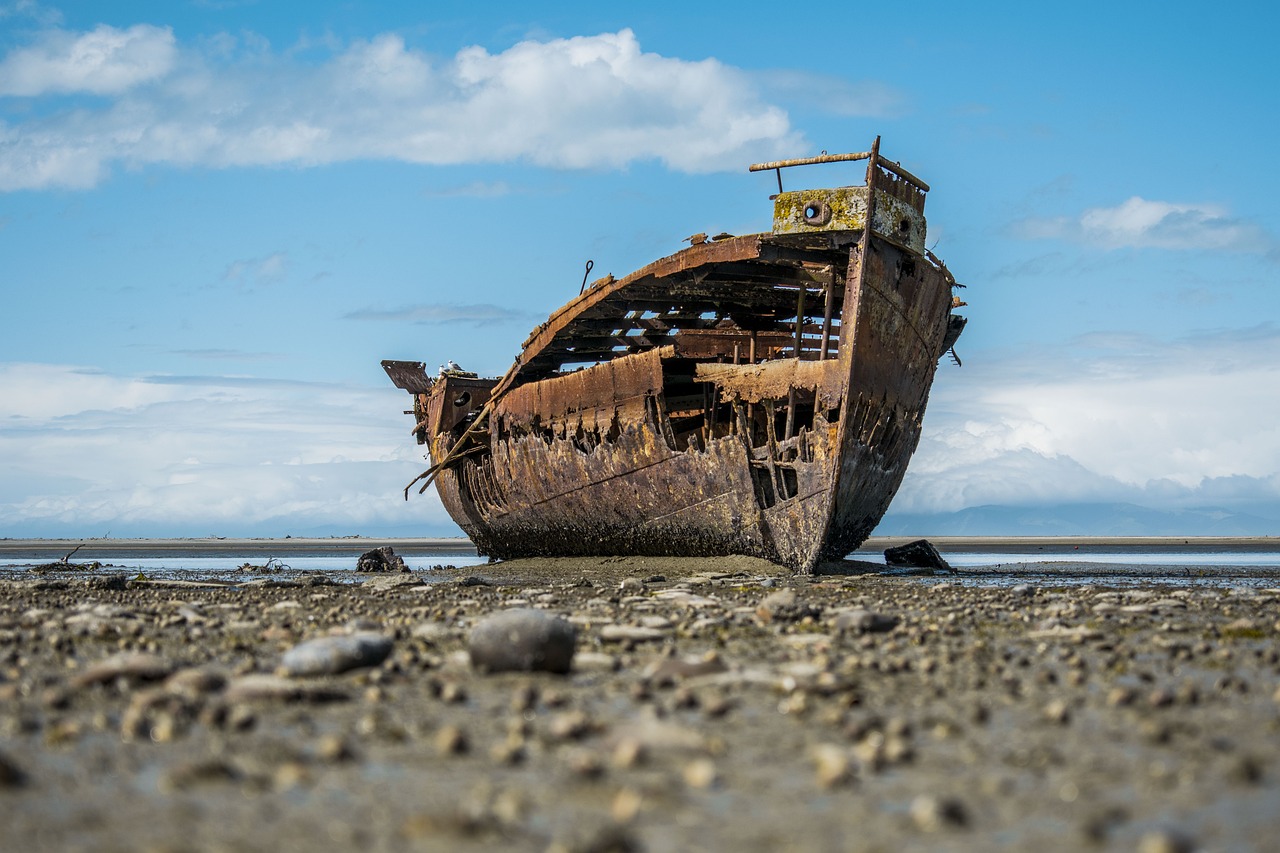Imagine embarking on a journey to the beautiful Greek islands, where crystal clear teal waters and picturesque landscapes await. But amidst their natural splendor lies a hidden treasure trove of history and mystery: the intriguing shipwrecks. These ancient vessels, frozen in time beneath the depths, hold stories of past civilizations, tales of maritime adventures, and secrets yet to be uncovered. Dive into the mystifying world of Greece’s shipwrecks and unlock the enigmatic wonders that lie beneath the waves.
History of Shipwrecks in the Greek Islands
The ancient maritime routes
The Greek Islands have a long and storied history of shipwrecks, dating back to the ancient maritime routes. These routes were essential for trade and navigation, connecting Greece to other civilizations in the Mediterranean. The treacherous seas surrounding the Greek Islands often proved to be a dangerous obstacle for sailors, leading to numerous shipwrecks along these routes. These shipwrecks provide valuable insights into the ancient world and its interconnected trade networks.
The importance of the Greek Islands in trade and navigation
The Greek Islands played a crucial role in trade and navigation throughout history. Their strategic location made them a hub for maritime activities, connecting Europe, Asia, and Africa. From the Minoan civilization to the Roman Empire, the Greek Islands served as waypoints for sailors, traders, and explorers. The abundance of shipwrecks in the waters surrounding these islands is a testament to the importance of this region in the ancient world.
Famous shipwrecks in Greek mythology
Greek mythology is rich with tales of shipwrecks. These mythical stories often revolve around gods, goddesses, and epic adventures. One famous shipwreck is that of Odysseus, as told in Homer’s Odyssey. Odysseus faced numerous challenges and encountered mythical creatures during his long journey home from the Trojan War. The shipwrecks in Greek mythology not only captivate our imagination but also provide a glimpse into the importance of maritime travel in ancient Greek culture.
Exploring Shipwrecks: Archaeological Expeditions
Role of archaeologists in uncovering shipwrecks
Archaeologists play a critical role in uncovering and studying shipwrecks. Through careful research and analysis, they piece together the history and significance of these underwater treasures. By studying shipwrecks, archaeologists gain insights into ancient civilizations, trade routes, and maritime practices. Their work sheds light on the past and helps us understand the rich cultural heritage of the Greek Islands and beyond.
Tools and techniques used in underwater archaeology
Underwater archaeology requires specialized tools and techniques to excavate and study shipwrecks. One essential tool is the remotely operated vehicle (ROV), which allows archaeologists to explore the depths without direct physical interaction. ROVs are equipped with cameras and other sensors to capture detailed images and collect data. Divers also play a crucial role in underwater excavations, using tools such as dredges and suction hoses to carefully remove sediment and reveal artifacts beneath the seabed.
Discoveries made during archaeological expeditions
Archaeological expeditions in the Greek Islands have led to remarkable discoveries. Ancient pottery, sculptures, and even intact ship structures have been recovered from the depths of the sea. These artifacts provide tangible evidence of past civilizations and their connection to the sea. They offer glimpses into the daily lives, trade networks, and artistic achievements of ancient societies. Each discovery adds to our understanding of history and allows us to appreciate the rich cultural heritage of the Greek Islands.
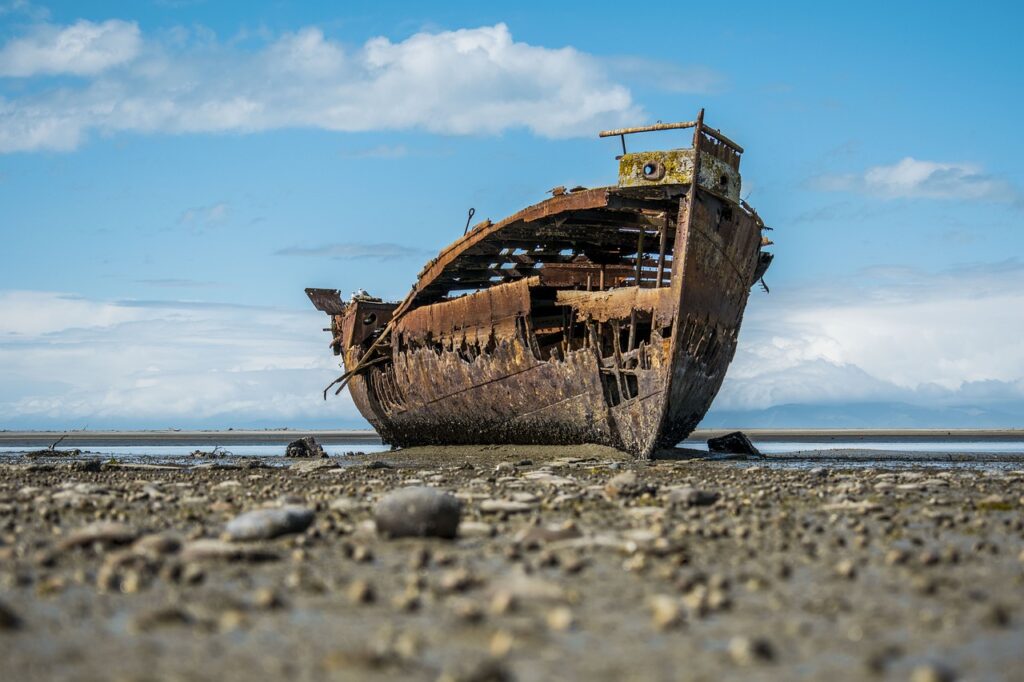
The Diving Experience: Exploring Shipwrecks
Popular diving sites in the Greek Islands
The Greek Islands are a paradise for diving enthusiasts, offering a plethora of stunning shipwreck sites to explore. One of the most famous diving destinations is the island of Zakynthos, home to the iconic shipwreck known as the “Navagio Beach.” This rusty freighter lies stranded on a picturesque sandy beach, surrounded by crystal clear turquoise waters. The island of Crete also boasts impressive diving sites, such as the wreck of the MS Antikythera, an early 20th-century cargo ship. These are just a few examples of the many captivating shipwrecks awaiting divers in the Greek Islands.
Equipment and safety measures for diving
Diving in shipwrecks requires specialized equipment and adherence to strict safety measures. A full-face mask or a diving helmet is recommended to provide better visibility and protection. Divers should also carry a dive light to illuminate the wrecks’ dark interiors and navigation tools such as a compass and a reel to ensure a safe return to the surface. It is crucial for divers to have proper training, certification, and experience before attempting to explore shipwrecks. Safety should always be a priority when venturing into the underwater world.
What to expect during a shipwreck dive
Embarking on a shipwreck dive is an unforgettable adventure that promises unique experiences. As you descend into the depths, the wreck gradually comes into view, revealing its majestic presence. Schools of fish may swim through the wreckage, adding to the surreal atmosphere. Exploring the interior of a shipwreck is like stepping back in time, surrounded by remnants of the past. The silence and stillness of the underwater world create an eerie yet mesmerizing ambiance. Each shipwreck dive offers a glimpse into a different chapter of history, intertwining the present with the past.
The Wonders Within Shipwrecks
Treasures and artifacts recovered from shipwrecks
Shipwrecks serve as time capsules, preserving invaluable treasures and artifacts from bygone eras. From ancient pottery and sculptures to precious metals and gemstones, these artifacts offer glimpses into the lives and cultures of those who sailed the seas centuries ago. The treasures recovered from shipwrecks are not only visually stunning but also hold immense historical and archaeological value. They provide tangible connections to the past and allow us to appreciate the craftsmanship and artistry of ancient civilizations.
Insights into ancient civilizations and trade routes
Shipwrecks provide invaluable insights into ancient civilizations and their intricate trade networks. Through the artifacts and cargo recovered from these wrecks, historians and archaeologists can piece together the economic, social, and cultural connections of the past. For example, the discovery of amphorae from various regions can shed light on the trading routes and networks of ancient Greece. Shipwrecks offer a window into the bustling maritime trade that shaped the Mediterranean world and paved the way for modern globalization.
Preservation and restoration of recovered relics
Preserving and restoring the artifacts recovered from shipwrecks is a challenging yet crucial task. These relics are often fragile and require delicate handling and conservation methods. Specialized laboratories and experts work tirelessly to stabilize and restore these artifacts, ensuring their long-term preservation and accessibility for future generations. The conservation efforts not only protect the physical integrity of the relics but also contribute to our understanding of ancient craftsmanship and techniques.

Unsolved Mysteries: Untouched Shipwrecks
The allure of untouched shipwrecks
Untouched shipwrecks hold a certain allure and mystery that captivates the imagination. These wrecks remain hidden in the depths, waiting to unveil their secrets to those daring enough to seek them out. The untouched state of these shipwrecks offers a unique opportunity to study the past without interference or disturbance. They serve as reminders of the ephemeral nature of human endeavors and the power of nature to preserve history.
Challenges in preserving and studying untouched sites
Preserving and studying untouched shipwrecks present significant challenges. The corrosive effects of saltwater, combined with the passage of time, can cause irreversible damage to these wrecks. The delicate balance between research and conservation must be carefully maintained to avoid disturbing the fragile ecosystems and artifacts that lie within these sites. Archeologists and researchers must develop innovative methods and technologies to study these untouched shipwrecks while ensuring their preservation for future generations.
Potential discoveries waiting to be made
Untouched shipwrecks hold the potential for groundbreaking discoveries and revelations about the past. These sites remain virtually untouched by human hands, offering a pristine glimpse into history. Each new exploration may unveil artifacts, structures, or evidence that challenges existing historical narratives or fills gaps in our knowledge. From lost treasures to forgotten civilizations, the undiscovered secrets of untouched shipwrecks hold the promise of reshaping our understanding of the past and inspiring new avenues of research.
Shipwrecks as Eco-Tourism Sites
The ecological impact of shipwrecks
Shipwrecks, when properly managed and maintained, can have positive ecological impacts. They act as artificial reefs, providing shelter and habitat for a diverse range of marine life. Fish, corals, and other marine organisms often populate these wrecks, creating vibrant ecosystems. The presence of shipwrecks can contribute to the overall biodiversity of the surrounding marine environment, making them valuable sites for eco-tourism and education.
Promoting conservation through tourism
Shipwreck tourism can play a crucial role in promoting conservation efforts. By showcasing the beauty and ecological importance of these sites, visitors develop a deeper appreciation for the fragile marine ecosystems. This increased awareness fosters a sense of responsibility towards the preservation of underwater habitats. Well-managed shipwreck tourism can generate funds for conservation initiatives, supporting ongoing research, preservation, and education about the marine environment.
Sustainable practices for shipwreck tourism
To ensure the long-term sustainability of shipwreck tourism, it is essential to implement sustainable practices. Proper mooring systems and buoyancy devices can minimize damage to the wrecks and surrounding habitats. Strict guidelines for diving and snorkeling activities can help prevent accidental damage caused by inexperienced or careless visitors. Education programs on responsible underwater behavior and marine conservation can further promote sustainable practices in shipwreck tourism.
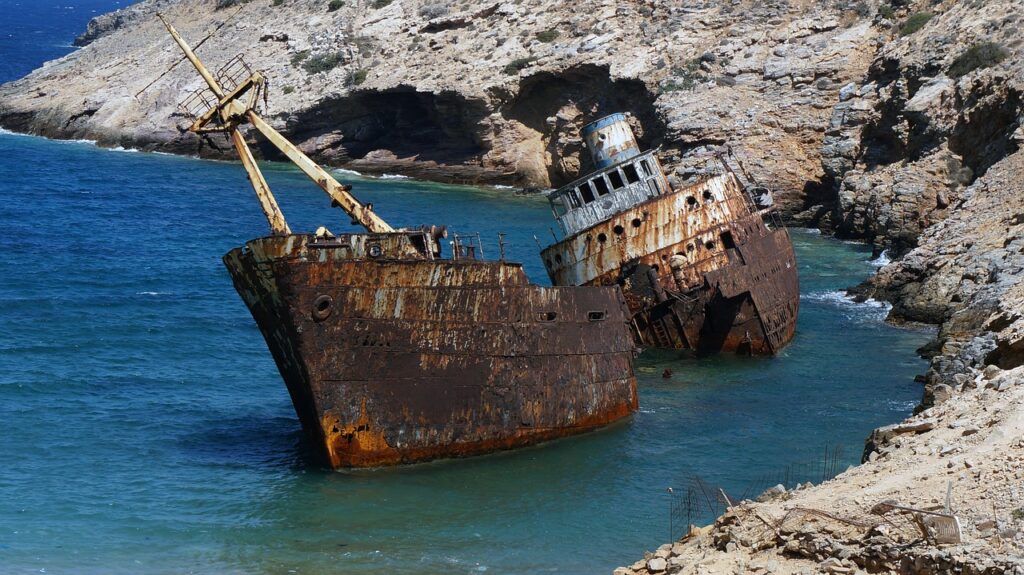
Shipwreck Legends and Folklore
Greek legends and myths surrounding shipwrecks
Greek culture is steeped in legends and myths, many of which revolve around shipwrecks and maritime adventures. These stories often feature mythical creatures, gods, and goddesses who hold the power to create or cause shipwrecks. For example, the story of the Sirens luring sailors to their demise is a well-known legend associated with shipwrecks in Greek mythology. These tales not only entertain and captivate audiences but also reflect the profound connection between Greek culture and the sea.
Folklore and local tales tied to specific shipwrecks
In addition to ancient mythology, local communities often have their own folklore and tales tied to specific shipwrecks. These stories are passed down through generations, keeping the memories of these maritime tragedies alive. These tales showcase the deep-rooted connection between the Greek Islands and their seafaring heritage. They serve as reminders of the hardships faced by sailors throughout history and the power of the sea to both sustain and destroy.
The role of shipwrecks in Greek cultural heritage
Shipwrecks hold a significant place in Greek cultural heritage. They serve as tangible reminders of the maritime history and traditions that have shaped Greek identity. Shipwrecks connect modern Greeks to their ancestors, highlighting the endurance and resilience of their seafaring heritage. Through the preservation and study of these wrecks, Greek cultural heritage is celebrated, fostering a sense of pride and appreciation for the rich history and traditions of the Greek Islands.
Shipwrecks: A Window into History
Insights into ancient maritime trade and navigation
Shipwrecks provide valuable insights into the ancient maritime trade and navigation practices. The cargo recovered from these wrecks offers a glimpse into the commodities traded and the routes taken by ancient sailors. The design and construction of the ships themselves reveal advancements in naval architecture and technological innovations. By studying shipwrecks, historians and archaeologists can reconstruct the economic and cultural exchanges that shaped the ancient world.
The impact of shipwrecks on historical research
Shipwrecks have a profound impact on historical research, allowing historians to corroborate written accounts and fill gaps in the historical record. These underwater time capsules lend credibility and tangible evidence to historical narratives. Through the examination of shipwrecks, researchers can challenge or support existing theories, providing a deeper understanding of the past. Shipwrecks are invaluable resources that contribute to the continuous refinement and reevaluation of historical knowledge.
Understanding the past through shipwreck exploration
Exploring shipwrecks offers a unique opportunity to understand the past through direct engagement with historical artifacts. By physically interacting with these remains, we can gain a deeper connection and empathy for the individuals who lived and sailed aboard these vessels. Shipwreck exploration goes beyond written accounts, providing a tangible connection to the lives, struggles, and achievements of our ancestors. It allows us to appreciate the human aspect of history and encourages us to preserve and protect our shared heritage.
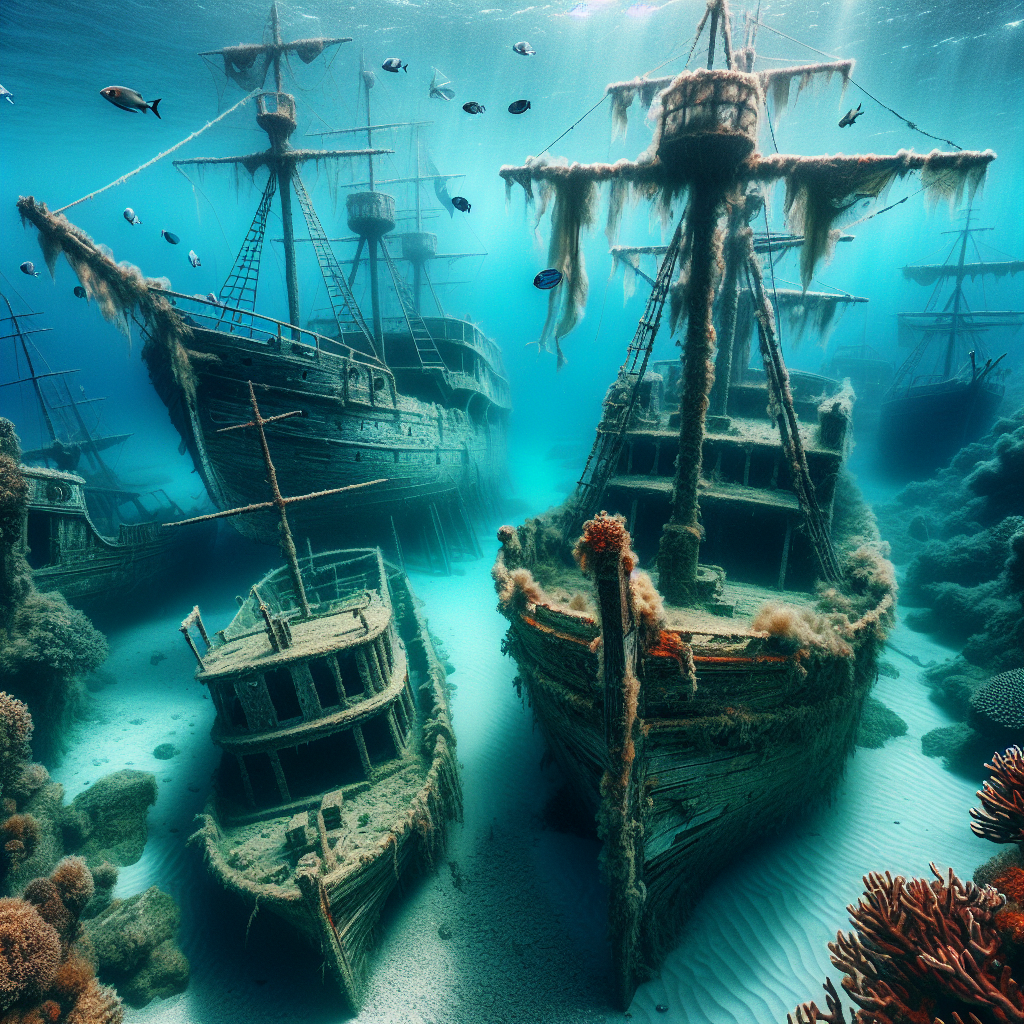
Shipwreck Conservation and Preservation
Challenges in preserving underwater cultural heritage
Preserving underwater cultural heritage poses numerous challenges. The underwater environment is harsh and unpredictable, subjecting shipwrecks to natural degradation processes. Saltwater corrosion, fishing activities, and accidental damage by human intervention all contribute to the deterioration of these wrecks. Limited resources, funding, and expertise further complicate the preservation efforts. Conservation initiatives must address these challenges while balancing the need for scientific research and public accessibility.
International efforts in shipwreck conservation
Recognizing the importance of preserving underwater cultural heritage, international organizations and governments have made concerted efforts in shipwreck conservation. The UNESCO Convention on the Protection of the Underwater Cultural Heritage provides a framework for international cooperation and the preservation of underwater sites. Collaborative initiatives between countries, conservation organizations, and research institutions have led to the development of best practices, guidelines, and legal frameworks to protect and conserve shipwrecks globally.
Methods and technologies for preserving shipwrecks
Preserving shipwrecks involves the application of various methods and technologies. Non-invasive techniques such as 3D scanning and photogrammetry allow for detailed documentation without physical disturbance. Advanced imaging technologies, such as side-scan sonar and multibeam echo sounders, aid in mapping the wrecks and their surrounding environments. Conservation methods including chemical stabilization, controlled drying, and controlled electrolysis help slow down the degradation process and ensure the long-term preservation of shipwrecks.
The Future of Shipwreck Exploration
Advancements in technology for locating and studying shipwrecks
Continual advancements in technology are revolutionizing the field of shipwreck exploration. Remote sensing tools, such as autonomous underwater vehicles (AUVs) and high-resolution sonar systems, enable researchers to locate and map previously inaccessible wrecks with greater precision. Underwater drones equipped with cameras and sensors offer new perspectives and data collection capabilities. These technological advancements enhance our ability to uncover and study shipwrecks, promising exciting discoveries in the future.
Collaborative efforts in underwater exploration
The future of shipwreck exploration lies in collaborative efforts between researchers, scientists, divers, and technology experts. By pooling together their diverse expertise, resources, and knowledge, these collaborative teams can achieve remarkable breakthroughs. International partnerships and interdisciplinary collaborations foster a holistic approach to shipwreck exploration and preservation. These joint efforts ensure access to a wide range of skills and perspectives necessary for successful underwater research and exploration.
Potential discoveries and revelations in the future
The future of shipwreck exploration holds immense potential for new discoveries and revelations. As technology advances and our understanding of the past deepens, we can expect to uncover hidden treasures, rewrite historical narratives, and shed new light on ancient civilizations. The untouched shipwrecks that lie waiting in the depths offer exciting possibilities for future research and exploration. Through these discoveries, we will continue to uncover the mysteries and wonders of the shipwrecks that grace the Greek Islands.
